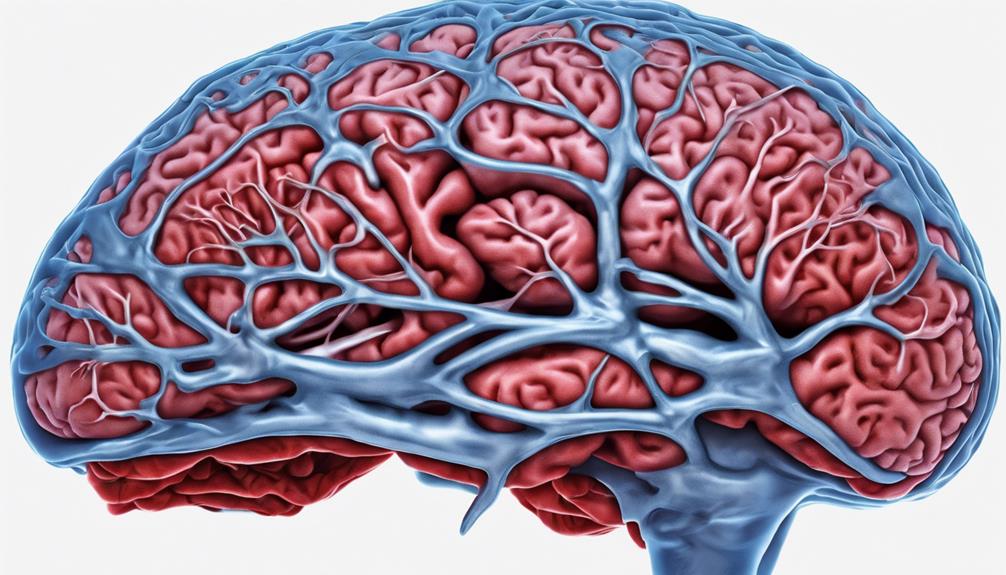Have you ever thought about how books that focus on dementia can provide crucial insights into dealing with the challenges of memory loss and caregiving?
Exploring the pages of these books opens doors to understanding the challenges faced by individuals with dementia and their caregivers, shedding light on practical strategies and emotional support.
From personal accounts to expert advice, these books provide a roadmap for creating connections and improving the quality of care for those impacted by dementia.
Key Takeaways
- Personal stories evoke empathy and understanding.
- Practical tips enhance caregiver skills and patient well-being.
- Coping strategies offer emotional support and guidance.
- Books on dementia raise awareness and foster community support.
Top Memoirs on Dementia
Discover inspiring and heart-wrenching personal accounts in the top memoirs on dementia, offering poignant insights into the daily battles and triumphs of those living with the disease. These memoirs, such as 'Creating Moments of Joy' and 'Family Guide to Caring for People with Alzheimer's Disease,' delve into the emotional journey of individuals facing dementia. Through these narratives, readers witness the raw realities of memory loss, the challenges of caregiving, and the profound impact on relationships and identity.
Authors bravely share their experiences, shedding light on the highs and lows of living with Alzheimer's and other forms of dementia. These memoirs serve as a guide for families, caregivers, and even patients themselves, offering wisdom and understanding in navigating the complexities of the disease.
Expert Guides on Dementia Care

As we navigate the complexities of dementia care, turning to expert guides can provide invaluable insights and practical strategies for supporting individuals facing the challenges of memory loss and caregiving. These books, authored by healthcare professionals, caregivers, and researchers with expertise in Alzheimer's and neurodegenerative diseases, offer practical advice on creating meaningful connections, understanding memory loss, and addressing caregiving challenges. Caregivers can find a wealth of knowledge in these expert guides, covering topics such as end-of-life care, caregiver support, activities for dementia patients, and innovative care approaches. By incorporating the strategies and insights from these books into their caregiving routines, caregivers can enhance the quality of care provided to individuals with dementia. Below is a table highlighting some key aspects covered in expert guides on dementia care:
| Topics | Description |
|---|---|
| End-of-life care | Guidance on providing compassionate care during the final stages of dementia. |
| Caregiver support | Strategies to help caregivers maintain their well-being while caring for others. |
| Activities for patients | Suggestions for engaging and meaningful activities to improve the quality of life for individuals with dementia. |
Emotional Support Books for Dementia
Exploring emotional support books for dementia can provide caregivers and individuals affected by the disease with valuable insights and guidance on navigating the complexities of dementia care. These books offer comfort, understanding, and practical advice to help in the journey of caring for people with Alzheimer's or other forms of dementia.
They emphasize the importance of approaching caregiving with empathy, patience, and a holistic support approach. Authors share coping strategies, communication techniques, and ways to find moments of joy amidst the challenges of memory care.
Reading these books can help caregivers maintain their well-being, create meaningful connections with their loved ones, and navigate the emotional rollercoaster that often accompanies caring for someone with dementia. By delving into these emotional support resources, caregivers can find solace, inspiration, and the tools needed to provide compassionate care.
Practical Tips for Dementia Caregivers

As dementia caregivers, we understand the importance of practical tips that can help in providing the best care for our loved ones affected by Alzheimer's and dementia. Engaging in person-centered communication and activities is key to maintaining a strong connection with our loved ones.
Joining support groups can provide us with valuable insights and emotional support, while utilizing respite care services can offer much-needed breaks to recharge.
As the disease progresses, considering long-term memory care facilities becomes essential. It's crucial to adapt to new realities and employ effective communication strategies to meet our loved ones' evolving needs.
Exploring different care types, including memory care facilities, and investing in safety devices can enhance the well-being and safety of those under our care.
Personal Stories of Dementia Journeys
Sharing personal stories of navigating the journey through dementia provides invaluable insights into the challenges and triumphs experienced by individuals and caregivers alike. These personal experiences bring to light the emotional rollercoaster that comes with caring for a loved one with Alzheimer's.
Here are three reasons why personal stories of dementia journeys are essential:
- Emotional Connection: Reading about real-life struggles and victories creates a deep sense of empathy towards those battling dementia and their caregivers. It fosters a connection that transcends mere sympathy, leading to a better understanding of the complexities involved.
- Raising Awareness: These narratives help raise awareness about the harsh realities of Alzheimer's and the immense challenges faced by caregivers. By shedding light on these personal experiences, a platform for education and advocacy is built, driving greater support and understanding within communities.
- Inspiring Support: Personal stories inspire others to offer support and assistance to those affected by dementia. They showcase the strength and resilience of individuals facing these challenges, motivating others to provide much-needed care and compassion.
Frequently Asked Questions
What Is the Best Book for Understanding Dementia?
When understanding dementia, it's crucial to find a book that provides comprehensive information and valuable insights. Different books offer unique perspectives and strategies for dealing with the challenges of dementia.
It's essential to explore various resources to find what resonates most with your situation. By engaging with diverse perspectives, we can gain a deeper understanding and compassion for those affected by dementia.
What Are the 7 A's of Dementia?
We understand the importance of knowing the 7 A's of Dementia.
These include anxiety, agitation, aggression, apathy, anosognosia, amnesia, and aphasia.
Each person may exhibit these symptoms uniquely, requiring personalized care.
By grasping these aspects, caregivers and healthcare providers can tailor interventions effectively.
Addressing the 7 A's not only enhances the lives of individuals with dementia but also supports their caregivers in navigating this challenging journey with empathy and understanding.
What Are 3 Things to Never Do With Your Loved One With Dementia?
When supporting a loved one with dementia, it's crucial to avoid arguing or correcting them, as it can lead to frustration.
Rushing or pressuring them should also be refrained from, as it can cause confusion.
Finally, dismissing their feelings or emotions is a no-go; they're valid.
What Is the Number One Trigger for Dementia Behavior?
In our experience, the number one trigger for dementia behavior often stems from environmental factors like loud noises or crowded spaces. Changes in routine or surroundings can also lead to challenging behaviors.
Physical discomfort, such as pain or hunger, is another common trigger. Emotional distress, like feeling overwhelmed or anxious, can also contribute to behavioral changes in individuals with dementia.
As caregivers, we can help manage these triggers effectively to support those with dementia.
Conclusion
As we close the final pages of these books on dementia, we're reminded of the intricate dance of love and loss that comes with caring for someone with memory loss.
While the journey may be filled with challenges and heartache, it's also a profound opportunity for growth and connection.
So, let's continue to learn, support each other, and cherish the moments of clarity and joy amidst the fog of dementia.








